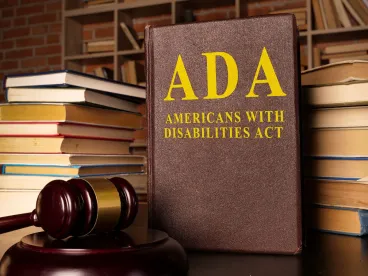On August 16, 2022, a split Fourth Circuit panel became the first federal appellate court to hold that gender dysphoria qualifies as a disability under the Americans with Disabilities Act (“ADA”). In Williams v. Kincaid, the panel’s majority held that gender dysphoria, a disabling medical condition that affects many transgender people, is distinct from the “gender identify disorders” Congress excluded from the law’s protections upon passage in 1990, meaning the ADA’s protections in employment settings, public accommodations and transportation now extend to people with gender dysphoria under the circuit’s jurisdiction.[1]
The circuit court’s 33-page decision revived a disability discrimination lawsuit brought by Kesha Williams, a transgender woman, who claimed that her assignment to a men’s detention center in Fairfax, Virginia was discriminatory. Although she had undergone gender transition 15 years ago and continued to receive hormone therapy that alleviated her gender dysphoria, Williams alleged that prison officials withdrew her hormone therapy, forced her to shower in the presence of men, subjected her to strip searches by male officers, and deliberately referred to her as a man, thereby jeopardizing her health. The defendants argued that the ADA’s exclusion for “gender identity disorders not resulting from physical impairments” applied to Williams’s gender dysphoria and barred her ADA claim. The district court granted defendants’ motion to dismiss, ruling Williams had no basis for relief because gender dysphoria is not a disability under the ADA.
Reversing the district court’s dismissal, the Fourth Circuit concluded that “nothing in the ADA . . . compels the conclusion that gender dysphoria constitutes a ‘gender identity disorder’ excluded from ADA protection.” U.S. Circuit Judge Diana Gribbon Motz wrote for the majority, which included U.S. Circuit Judge Pamela A. Harris. Citing a shift in medical understanding, the Fourth Circuit concluded there are clear differences between gender dysphoria and what Congress meant to exclude from the law’s protections.
FOOTNOTES
[1] Residents in Maryland, Virginia, West Virginia, North Carolina and South Carolina are under the circuit’s jurisdiction.



 />i
/>i

